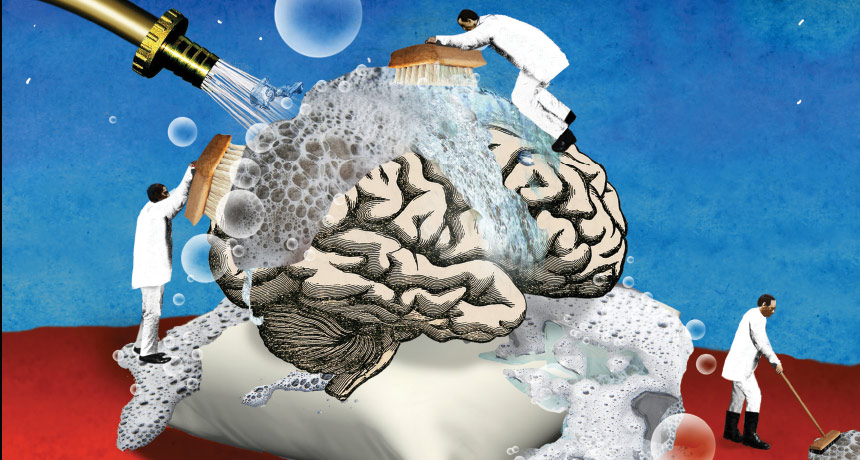By Robin K. Wright
As a change in the seasons arrives, now is the perfect time of year to consider a spring clean. You are likely to get a lot of satisfaction from decluttering your life – whether it be sifting through your wardrobe, throwing away old papers and documents, or just having a general tidy-up in your home.
But have you ever considered spring-cleaning your brain?
Simplification is one of the foundations of mental clarity. Paring back the superfluous or unnecessary things in your life can help to conserve precious cognitive resources for the thoughts and decisions that really matter. This produces the right conditions in the brain for creative thinking and problem-solving.
There are a number of techniques you can practice to help you achieve a simpler way of living and, along with it, a clearer mind that can cut through the noise and bustle of everyday life.
Mindfulness
You’re probably familiar with mindfulness – the practice of focusing all your attention on the present moment – which has long been associated with relaxation and stress relief. By simplifying what you ask your mind to focus on, and concentrating solely on your own breathing, body, and thoughts as they enter and leave your mind, you can reduce levels of cortisol in your blood and the corresponding feelings of stress.
When you practice mindfulness, your brain goes into a gamma-wave state of relaxed alertness. One example for women, the regular practice of yoga or meditation three times a week results in lower levels of the stress hormone cortisol compared with other women of the same age who do not practice these exercises. Regular mindfulness practiced over eight weeks will lead to increased gyrification – the formation of more folds – in the prefrontal cortex, the part of the brain associated with higher executive functions. These extra folds will help the brain enhance its performance when carrying out these functions, which will have an impact on your ability to think flexibly and make good decisions.
Choice reduction
To achieve mental clarity first thing in the morning, avoid drawing on too much of your finite cognitive resources by making a lot of low-level decisions early on. Get up at the same time each day, eat the same thing for breakfast take the same commute, and limit your work wardrobe to a few staples. While sounding regimented, all of this will help prevent ‘decision fatigue’, which reduces your willpower.
The same principle applies when you are trying to change a habit or learn something new. Avoid over-committing and aim to alter one simple thing at a time. Focusing on a single task will help concentrate your brain’s resources and reinforce the neural pathway needed to learn a fresh behavior.
Visualization
Every day, we’re bombarded with information that competes for our attention and make it hard for us to see the forest for the trees. And it continues to keep expanding and get more invasive of our thoughts and time.
Having too much to think about makes us stressed, and in this situation, the brain often resorts to survival mode. This instinctive reaction, caused by a rise in cortisol levels, will cause blood to be drawn away from the prefrontal cortex, which is responsible for regulating our emotions, thinking creatively, and communicating effectively.
If you have a particular goal you want to achieve, simplify things by creating a vision board with visual prompts that reflect that one specific ambition. Research has shown that holding an image in your mind will have a longer-term effect on your behavior change because pictures follow different neural pathways than those linked with language and conscious reasoning.
We need to practice the art of decluttering our brain, the same we do with the other relative aspects of our everyday lives. The brain is one of the strongest organs in our body. Without it functioning properly, we do not function properly.
While we take time to clean out our garages, houses, and offices, let’s remember to take time and clean out the number one priority, ourselves.
The University of Central Florida Business Incubation Program is a community resource that provides early-stage companies with the tools, training, and infrastructure to become financially stable, high growth/impact enterprises. Since 1999, this award-winning program has provided vital business development resources resulting in over 300 local startup companies reaching their potential faster and graduating into the community where they continue to grow and positively impact the local economy.
With eight facilities throughout the region, the UCF Business Incubation Program is an economic development partnership between the University of Central Florida, the Corridor, Orange, Osceola, Seminole, and Volusia Counties, and the cities of Kissimmee, Orlando, and Winter Springs. For the 2017/2018 fiscal years, the activities of these participating firms have helped to sustain more than 6,725 local jobs and have had a cumulative impact of over $725 million on regional GDP and over $1.3 billion on regional sales. During the same period, the program has returned more than $12.00 in state and local taxes for every $1.00 invested in the program. In addition, for every $1.00 of public investment, the firms also produced $118 of additional regional GDP and $226 of regional sales. For more information, visit www.incubator.ucf.edu.






